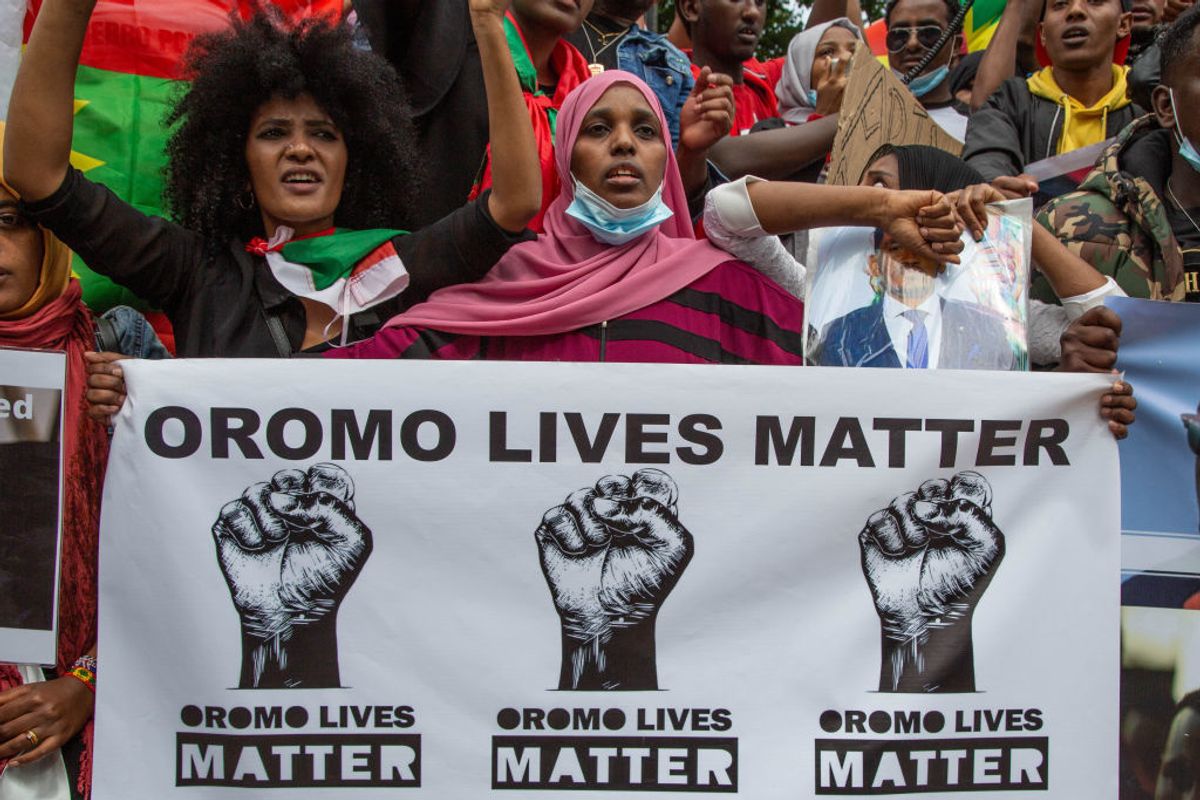
Protesters holding a banner saying, Oromo lives matter, during the demonstration. Ethiopian Oromo community in London protest demanding justice for Slain singer, Haacaaluu Hundeessaa. Haacaaluu sang in the Oromo language, Ethiopias largest ethnic group and his music became the melody of a protest movement that helped bring down Ethiopia's government in 2018.
Photo by Thabo Jaiyesimi/SOPA Images/LightRocket via Getty Images.


